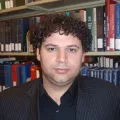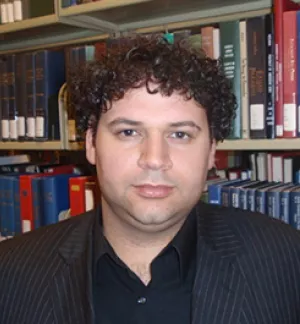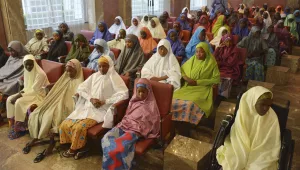The Debate: An Introduction
The perception of Muslims living in the United States has deteriorated dramatically since the terrorist attacks on September 11th, 2001. U.S.-Muslims, a group that had already faced discrimination prior to the attacks, became even more visible to the public. Non-Muslim Americans began questioning American Muslim loyalties to the United States as well as their commitment to being “good” citizens. Such doubt extended to the political arena as well, prompting intrusive inquiries into Muslim-affiliated civic and political organizations and their members. Even non-Muslims with Muslim affiliations or Muslim-sounding names or appearances have been subject to public scrutiny. For example, despite identifying as a Christian, President Barack Obama’s religious affiliation has been continually doubted by some due to his Kenyan Muslim heritage and his middle name, Hussein. Though a decade has passed since the events of September 11th, the role ofAmerican Muslims, and whether they can at all be trusted, remains a popular concern anda topic of household conversation.
Despite the seemingly pervasive fear of Muslims in America, the question remains: How different are Muslims than non-Muslims in the U.S.? Do Muslims have values that are drastically different than other Americans?
It is important to consider how Islam was addressed prior to September 11th, 2001 in order to fully understand the context and trajectory of events that followed. For one, it is important to take note of certain anti-Islamic attitudes that existed in the U.S., even within the academic community. In recent years, the most exemplary academic work that set the stage for a renewed wave of conflict is The Clash of Civilizations (1993, 1996) by Samuel Huntington. “Other” cultures and civilizations will be a source of conflict with “our” civilization. Negative attitudes toward non-Western civilizations emerged as the “new world order” was being framed. In his thesis, Huntington argued that in the years after the collapse of the Soviet Union the world would no longer witness conflicts as a result of ideological and economically-based differences, but rather around cultural “fault lines.” In the years following Huntington’s work, the teachings of Islam and Western traditions of modernity have increasingly been perceived to be at odds with one another.
Islam and Muslims were also often seen in the context of the works of Bernard Lewis, a well-known Middle East historian from Princeton University. His work provided a vision of Islam and Muslims that constituted a theoretical framework for Samuel Huntington’s post-Soviet, Cold War-era vision of the world. Lewis was in fact one of the first to use the term “Clash of Civilizations” to address what he called “The Roots of Muslim Rage” in 1990. In his book What Went Wrong? (2002), Lewis argues that Muslims as individuals and communities are incapable of modernization, and that modern, pluralistic societies are inherently based on Western values and will always be non-Islamic. Huntington and Lewis have popularized a view that says all Muslims, regardless of where they live, are incapable of living in non-Muslim societies due to their religious identity and significant cultural differences that are incompatible with the Western way of life.
Huntington and Lewis’ views have become widely accepted and internalized, and are thus indispensable in providing a context to our study of Islam and Muslims in Western societies. Despite the high amount of subjectivity in their analysis, many take their views as fact. This has further isolated and alienated Muslims in the West by branding them as potential terrorists, all while disregarding the generations of Muslims who have lived peacefully in America and Europe. Muslim-American communities are perceived to hold un-American values and traditions despite their long history in this country, and it is very likely that this belief will persevere for quite some time.
This paper provides insight into the question of whether the political and social values of Muslims and non-Muslims living in the U.S. differ significantly. To this end, we present data on civic and political attitudes from the Muslim American Public Opinion Survey, which will be described in detail in the following sections.
To read the full paper, please download the PDF below.
Dana, Karam. "Muslims in America." Working Paper, The Dubai Initiative, Belfer Center for Science and International Affairs, Harvard Kennedy School, October 2011.




